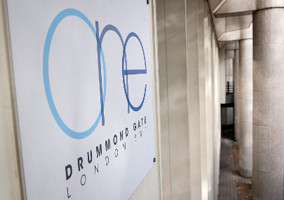The Charity Commission has recently confirmed that charitable education for the public benefit must inform the public in a balanced and neutral way. It should not base its contribution on selectively presented information that is designed to promote a particular point of view.
The Legatum Institute Foundation recently fell foul of this guidance with its report Brexit Inflection Point: The Pathway to Prosperity published on 4 November 2017".
It was okay for Legatum to have a free trade perspective as a starting point, but it was not okay to fail to make clear that there are multiple Brexit outcomes and that free trade is only one of a number of potential political outcomes that might be sought. It was not okay to fail to present balanced, neutral evidence and analysis. As a result, the Commission concludes that the report could be seen as promoting a particular political view for the aim of a particular outcome and recommending specific government action that reflects this. That is inconsistent, says the Commission, with the purpose of charitable education.
I have written to Helen Stephenson, chief executive of the Charity Commission, to suggest that this guidance is incompatible with the continuing charitable status of the free market think tank The Institute of Economic Affairs (IEA).
The IEA produces a whole stream of reports, articles and verbal media contributions on highly controversial subjects, all with a view to shrinking the state and promoting free market solutions. They are not balanced and neutral. There is no consideration of the downsides of policies recommended by IEA reports nor of other desirable outcomes or alternatives. As I write to Helen Stephenson, "Whether the subject is the growth of obesity, the taxation of alcohol, public health policies, taxation, tax havens, Sock Puppets or solving the housing crisis by reducing planning controls, you will find in every case a one-sided and controversial contribution (whether adorned by footnotes or not) aimed at reducing the role of the state." One of the latest is, in the words chosen by IEA, "a report debunking the myths surrounding the purposes of tax havens". Does that sound like a balanced and neutral contribution?
To my mind, the reason is plain from reading the IEA's website. This explains that the purpose of the IEA is not merely academic or intellectual but is also directed at securing lower taxes, lighter regulation and what they call "freedom" in education and health. It explains that all of its contributors and partners are, explicitly, looking out for ways of shrinking the state. That agenda is of its nature partly political, as defined by the Commission in its guidance on political activity. CC9 says that a charity cannot exist, either wholly or in part, for any purpose "directed at...securing or opposing a change in the law, policy or decisions of central government, local authorities, or other public bodies."
Charitable version of Widow Twankey
Like Widow Twankey, the IEA wears the clothes of an educational charity, but the reality beneath is different: an organisation with a partly political purpose and a controversial, predetermined viewpoint which it seeks to promote with vigorous consistency. This purpose might be good for public debate and pluralism, but it is not charitable.
I am leaving for another time the debate over another aspect of the IEA, which is its untransparent treatment of who funds its work. Its standards of transparency are far below those of many other well known charitable think tanks. The public does not know whether those funding its work might have a personal or financial interest in relation to tobacco, sugar, tax havens, alcoholic drink, and so forth. This is not good for public confidence in the nature of charities' work as being exclusively for the benefit of the public. There are complex arguments about what could effectively and properly be done about this.
For now, the key question if this. If the IEA consistently breaches the guidance recently reaffirmed in the Legatum case, why should it remain recognised by the Charity Commission as an educational charity? There have been other cases where a charity originally registered as a charity turned out, in practice, not to be (an example is the Atlantic Bridge, on which the Commission produced a critical report in 2010). I have asked Helen Stephenson to consider the issues afresh, taking full account of the Commission's conclusions in the Legatum case. It isn't easy, but the integrity and consistency of the Commission's guidance on both political activity and the nature of charitable education are precious commodities in a world of polarised, one sided opinions.
The full text of my letter to Helen Stephenson is attached below.
Helen Stephenson,
Chief Executive,
The Charity Commission for England and Wales. 11 June 2018
Dear Helen,
Institute of Economic Affairs (IEA)
The Commission’s recently published conclusions of its case inquiry into the Legatum Institute Foundation provide welcome reconfirmation of the Commission’s guidance on the nature of charitable education for the public benefit. They therefore also shed light on the (to my mind) unresolved issues about whether the IEA is really an educational charity.
This has been the subject of correspondence between me and your predecessor and your colleague Anthony Blake. The last in this series is my letter of 8 November 2017, to which I discovered after waiting patiently for five months that I was not going to receive a substantive reply.
The recent ruling on Legatum does, however, emphasise afresh “the necessary balance and neutrality required of an educational charity”. This is crucial to the question of whether the IEA is or should be a charity or not and offers a clear prism through which to review the issues.
You have ruled that having a free trade perspective as a starting point is not in itself a problem with Legatum. Similarly, you have previously made clear that having a free market perspective is not in itself a problem with the IEA. But you go on to say of the Legatum case: “to be consistent with the charity’s object to advance education, a report of this nature (Brexit Inflection Point: The Pathway to Prosperity”, 4 November 2017) should make clear that a desired outcome of free trade is only one of a number of the potential political outcomes that might be sought. It should present balanced, neutral evidence and analysis explaining why it has chosen to adopt a free trade perspective over others”. The Legatum report is not in the Commission’s view balanced and neutral in this way, and so you conclude that the report could be seen as promoting a particular political view for the aim of a particular outcome and recommending specific government action that reflects this. You say that “failing to make clear that there are multiple potential Brexit outcomes and that free trade is one of a number of political outcomes, the report is not consistent with the advancement of education for the public benefit.”
Let us now apply this guidance to the work of the IEA.
In the IEA’s case, I do not accept that the real purpose, as defined in practice, is exclusively charitable anyway. The IEA does not merely have a general perspective of favouring the benefits of the free market as an approach to economics. Part of its real purpose as defined on its website is directed at securing lower taxes, lower regulation and what they call “freedom” in education and health, and all its contributors and partners are, they say, explicitly looking for ways of shrinking the state. This falls squarely and unequivocally within CC9‘s definition of “political”, because it includes (in the words of CC9) “securing or opposing a change in the law, policy or decisions of central government, local authorities or other public bodies.” I have also yet to meet anyone who shares the view put forward by Anthony Blake that this viewpoint is “relatively uncontroversial”. It is highly controversial, as a matter of objective fact. In my opinion, therefore, the purpose of IEA as explained in their own words is clearly partly political and cannot be exclusively charitable. It includes also the purpose of promoting a controversial predetermined conclusion that is inconsistent with your guidance on the nature of charitable education.
It is true that the IEA claims to have no corporate position, but this is undermined by the explanation of purpose as quoted above and by the fact that every report and article is in line with the partly political purpose of shrinking the state. When we hear an IEA staff member joining in public debate, we must assume that person is speaking on behalf of the IEA. When we read on the IEA website that, for example, “The IEA releases a report debunking the myths surrounding the purposes of tax havens” and again the headline “We have tax havens to thank for rising levels of global prosperity” (6 June 2018) we are bound to assume unless explicitly told otherwise that this is endorsed by or represents the views of the charity. These are not placed in inverted commas by the IEA to suggest they are someone else’s views. There is no disclaimer saying in promotional press releases that these do not necessarily represent the views of the IEA as a charity.
What has changed since our previous correspondence, however, is that even if the predetermined viewpoint of the IEA were not partly political of its nature, (which in my view it clearly is), their work would still fall foul of the fresh clarification of your guidance. Even if the starting point of Legatum is legitimate, you say, a report on a controversial political subject should present balanced, neutral evidence and recognise the variety of possible outcomes that might be sought. Now the status and role of tax havens is a live and controversial political issue, not only in the UK but globally. So is a “report debunking the myths surrounding the purposes of tax havens” (IEA’s words) of a balanced and neutral type to fit the requirements applied to the Legatum case? No, as this description by the IEA makes clear, this is a one-sided debunking exercise.
Similarly, none of the IEA reports mentioned in my previous correspondence makes a serious effort to be balanced and neutral. There is no analysis of possible downsides to recommended policies, nor of other possibly desirable outcomes. Whether the subject is the growth of obesity, the taxation of alcohol, public health policies, taxation, tax havens, Sock Puppets, or solution to the housing crisis, you will not find a neutral and balanced contribution by the IEA, you will find in every case a one-sided and controversial contribution (whether adorned with footnotes or not) aimed at reducing the role of the state.
The IEA also claims that it does not “sell” policy. Well, it publicises these reports vigorously through the media, fields staff to promote and defend them, summarises them without placing the summary in inverted commas and gives no indication to anyone visiting their policy reports and prescriptions section of the website or press releases that these may not represent the views of the charity. If I describe to you the blessings and advantages of a particular Hoover and promote it through social media, in what sense am I not “selling” it?
In my view it is wrong to bend over backwards to argue that all this is consistent with your own guidance on the nature of charitable education. As the Commission’s guidance states, “promoting a specific point of view may be a way of furthering another charitable aim, but it would not be education”.
This is not just a re-hash of previous correspondence. The new factor here is the reaffirmation in the Legatum case of your guidance about charitable education, including the requirement to be neutral and balanced in the way in which an argument or piece of research is developed from what could in principle be a legitimate starting point. The truth is that, using the language you employ in relation to the Legatum ruling, the IEA does not "inform the public in a balanced and neutral way". Its hallmark is precisely to sponsor and publicise contributions that "are based on selectively presented information that is designed to promote a particular point of view", namely that the State must be shrunk - a partly political objective.
Like Widow Twankey, the IEA wears the clothes of an educational charity but the reality beneath is different.
The Commission does its best at the time of registration to distinguish between a proper charity and an organisation that should not receive charitable status, but sometimes the way the “charity” interprets its objects and pursues them in practice over time turns out to be non-charitable, and in that case there is no dishonour in the Commission’s revising its assessment accordingly.
I do not agree with the argument that, because there are charitable think tanks with different perspectives, if you move against one they will all fall down like dominoes. I do not accept that my criticisms of the IEA’s charity status apply to most other charitable think tanks. Surely every case should be looked at on its individual merits, to see if it follows the Commission’s guidance on what it means to be an educational charity? Some think tanks are charitable, some are not. Similarly, I do not agree with the sentiment that left wing people criticise the right-wing think-tanks while right wing people criticise the left wing ones, so they cancel each other out and it’s all politically motivated. On the contrary, in the world of politically controversial policy debate, the even handed, consistent application of the Commission’s public guidance is all the more important.
I am refraining from raising again here another aspect of the IEA that causes disquiet, namely the lack of transparency about who is donating funds to pay for their work. This leads to speculation that such donors might have some sort of financial interest in the views promoted by the IEA, which doesn’t help trust and confidence in charities as existing purely for the public benefit. The arguments and counter- arguments about that are an important but separate matter.
I do ask the Commission to reassess the charity status of the IEA in the light of their conclusions and guidance in the Legatum case.
Yours sincerely,
Andrew Purkis.
Related articles











